#miss darcy
Explore tagged Tumblr posts
Text
"It gives me pain to speak ill of a Darcy" yet youve been doing nothing but for the last five pages
#pride and prejudice#im very much prejudice wickham#i dont remember what he did but if mr bingley doesnt like him then fuck him#mr bingley is so far the mvp of the book#elizabeth bennet#mr darcy#miss darcy#mr wickham
11 notes
·
View notes
Text

One tiny crime would be wiped out by thousands of good deeds.
14 notes
·
View notes
Text

#created by yours truly#meme#pride and prejudice#pride and prejudice meme#miss bingley#caroline bingley#elizabeth bennet#mr darcy#darcy#miss darcy#georgiana darcy#jane austen
23 notes
·
View notes
Text
the fact that we as a society have the muppets and they are not everywhere in our cultural consciousness is appalling. why aren't the muppets hosting the oscars. why aren't the muppets commentating the olympics. why aren't the muppets coming to a theatre near me every year with a new adaptation of a classic novel. genuinely what are we doing.
40K notes
·
View notes
Text
My favorite ship dynamic of all time, ever, is a little something I like to call anxiety x audacity
Examples:


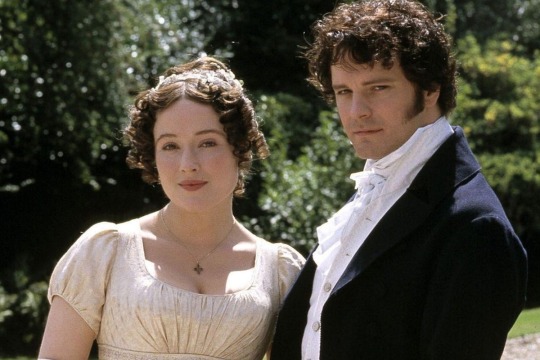
#ship#ship dynamics#miss piggy#kermit#the muppets#pride and prejudice#elizabeth bennet#lizzy bennet#mr darcy#fitzwilliam darcy#jane austen#the good place#chidi anagonye#chidi and eleanor#eleanor shellstrop
12K notes
·
View notes
Text
Pride and Prejudice is such a funny book because imagine hating on someone you’ve never met right in front of them and then like a day later being like oops actually I like your eyes.
#pride and prejudice#jane austen#Jane Austen novels#classic books#classics#classic lit#literature#english literature#romance novels#romance books#p&p#fitzwilliam darcy#mr darcy#elizabeth bennet#lizzy bennet#miss bennet
286 notes
·
View notes
Text

I made this today as a banner for a '@janeuary-month 2025 Day 11: Card Playing' fanfic I'm writing, but I love it enough that I think it deserves it's own post despite the low resolution.
#Husband downloaded the drivers for my 15yo wacom tablet and now I'm UNSTOPPABLE!!!!!!!#yeah yeah I missed the date it'll still be out at some point#art#fanart#illustration#janeuary#janeuary 2025#jane austen#pride and prejudice#pride & prejudice#elizabeth bennet#fitzwilliam darcy#elizabeth x darcy#darcy x elizabeth#mr darcy#my art#digital art
116 notes
·
View notes
Text
Speaking of the social context of P&P and Austen in general, and also just literature of that era, I'm always interested in how things like precisely formulated hierarchies of precedence and tables of ranked social classes interact with the more complex and nuanced details of class-based status and consequence on a pragmatic day-to-day level. I remembered reading a social historian discussing the pragmatics of class wrt eighteenth-century English life many years ago and finally tracked down the source:
"In spite of the number of people who got their living from manufacture or trade, fundamentally it was a society in which the ownership of land alone conveyed social prestige and full political rights. ... The apex of this society was the nobility. In the eyes of the Law only members of the House of Lords, the peerage in the strictest use of the word, were a class apart, enjoying special privileges and composing one of the estates of the realm. Their families were commoners: even the eldest sons of peers could sit in the House of Commons. It was therefore in the social rather than in the legal sense of the word that English society was a class society. Before the law all English people except the peers were in theory equal. Legal concept and social practice were, however, very different. When men spoke of the nobility, they meant the sons and daughters, the brothers and sisters, the uncles and aunts and cousins of the peers. They were an extremely influential and wealthy group.
"The peers and their near relations almost monopolized high political office. From these great families came the wealthiest Church dignitaries, the higher ranks in the army and navy. Many of them found a career in law; some even did not disdain the money to be made in trade. What gave this class its particular importance in the political life of the day was the way in which it was organized on a basis of family and connection ... in eighteenth-century politics men rarely acted as isolated individuals. A man came into Parliament supported by his friends and relations who expected, in return for this support, that he would further their interests to the extent of his parliamentary influence.
"Next in both political and social importance came the gentry. Again it is not easy to define exactly who were covered by this term. The Law knew nothing of gentle birth but Society recognized it. Like the nobility this group too was as a class closely connected with land. Indeed, the border line between the two classes is at times almost impossible to define ... Often these men are described as the squirearchy, this term being used to cover the major landowning families in every county who were not connected by birth with the aristocracy. Between them and the local nobility there was often considerable jealousy. The country gentleman considered himself well qualified to manage the affairs of his county without aristocratic interference.
"...The next great layer in society is perhaps best described the contemporary term 'the Middling Sort'. As with all eighteenth-century groups it is difficult to draw a clear line of demarcation between them and their social superiors and inferiors. No economic line is possible, for a man with no pretensions to gentility might well be more prosperous than many a small squire. There was even on the fringe between the two classes some overlapping of activities ... The ambitious upstart who bought an estate and spent his income as a gentleman, might be either cold-shouldered by his better-born neighbours or treated by them with a certain contemptuous politeness. If however his daughters were presentable and well dowered, and if his sons received the education considered suitable for gentlemen, the next generation would see the obliteration of whatever distinction still remained. The solid mass of the middling sort had however no such aspirations, or considered them beyond their reach.
"...This term [the poor] was widely used to designate the great mass of the manual workers. Within their ranks differences of income and of outlook were as varied as those that characterized the middle class. Once again the line of demarcation is hard to draw..."
—Dorothy Marshall, Eighteenth Century England (29-34)
(There's plenty more interesting information in the full chapter, especially regarding "the poor," and the chapter itself is contracted from a lengthier version published earlier.)
#anghraine babbles#long post#dorothy marshall#eighteenth century england#austen blogging#eighteenth century blogging#also thinking about this in terms of elizabeth spending so much of pride and prejudice /acutely/ conscious of a social divide#between her family (as in the bennets and mr collins) and darcy's status - so her claim to equality with him w/ lady catherine is- well#not a dry sociological statement but an important character moment for elizabeth (and lady catherine!)#realistically darcy's lifestyle politics and interests ARE far more allied with ppl like the fitzwilliams than ppl like the bennets#and elizabeth is not at all ignorant of that - it's why she initially thinks he's too much of a great man to be interested in her#even before she knows of his close connections to literal nobility#and that is probably the more ... normative? understanding of their respective positions.#so her later claim to equality with him - in a way that forces ly c to acknowledge elizabeth's own status - is not a simple neutral truth#but weighted in a way that's important thematically and for elizabeth's development - something that the pure sociological take misses imo#anghraine's meta#austen fanwank#sorta
160 notes
·
View notes
Text

Plot question: Icy freezes this fairy’s wings in S3:E10 and they fall off. Why have they not done that before? It works??? How is this the first time they think to do this. Why do they never do it again (to my knowledge). It takes fairy dust to bring them back.
#plot holes#winx#winx club#darcy winx#trix winx#winx season 3#winx question#club winx#why not#what am i missing
72 notes
·
View notes
Text
“an exceedingly pleasant and amiable young gentleman but… mentally he is negligible - quite negligible” is the Jeeves and Wooster equivalent of “she is tolerable, but not handsome enough to tempt me”
#just thinking#especially because after that#lizzie despises darcy and refuses to humour him#constantly trying to prove that she doesn’t like him and that she’s more than tolerable thank you#meanwhile darcy’s falling in love#that’s exactly what happens to bertie and jeeves#bertie embarks on a quest to prove jeeves wrong#while jeeves becomes more and more fond#until it culminates in TYJ and RHJ#is the bicycle scene in RHJ a parallel to the rainy proposal in P&P?#who’s to say#is that what wodehouse intended me to think? positively not#anyway i did write like the opening two chapters of a p&p version of jeeves and wooster#where jeeves was darcy and bertie elizabeth#obviously madeline was jane and gussie bingley#they fit the roles quite well because jeeves was over here like “i have never met anyone i can call truly accomplished”#and having insane tension with bertie#and at the same time gussie was just like “miss bassett can i show you another newt”#i mean jeeves has a habit of ending engagements if he disapproves#very fitzwilliam darcy of him#jeeves and wooster#bertie wooster#reginald jeeves#pg wodehouse#jooster#sorry long tags#i got too into the pride and prejudice
117 notes
·
View notes
Text

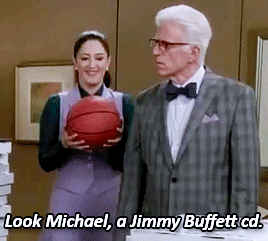





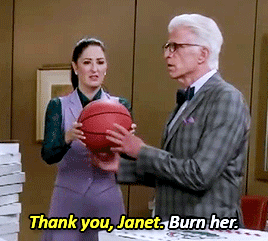
x
#The Good Place#d'arcy carden#ted danson#Janet#michael#darcy carden#gif#gag reel#I watched the first season almost a week ago and I'm excited to dive into the rest!#I just loved this too much to not gif it no matter how shitty the coloring is hahaha#I also made a gif for twitter#d'arcymine#yes i made her a tag here because i'm hooked and i missed tumblr
545 notes
·
View notes
Text
The list of fictional men who are the reason I will never get married because they set the standard too high (in order of when I discovered them):
1. Mr. Darcy
2. Peeta Mellark
3. Jamie Fraser
AAAANNND THE NEWEST TO THE LIST
4. Show!Colin Bridgerton
(I realized that all these men are written by women 😭)
#polin#bridgerton#colin bridgerton#pride and prejudice#mr. darcy#peeta mellark#everlark#jamie fraser#the hunger games#outlander#WHERE CAN I FIND MY OWN???#tell me who should I add to this growing list?#did i miss anyone 👀?
88 notes
·
View notes
Photo
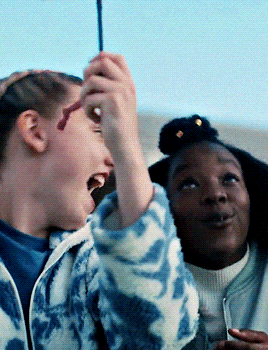

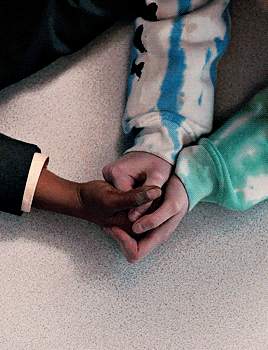

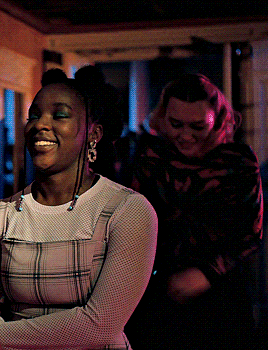



You’ve befriended the school lesbians.
#heartstopper#heartstopperedit#heartstoppercentral#dailynetflix#userbbelcher#usertelevision#femalecharacters#dailylgbtq#wlwsource#wlwedit#tara x darcy#tara jones#darcy olsson#**#tw flashing#i miss my kids can't wait for them to return to us
776 notes
·
View notes
Text




closer and closer
#why is darcy present for all of those#thor#thor odinson#jane foster#thor x jane#chris hemsworth#natalie portman#marvel#marveledit#thoredit#chemsedit#nportmanedit#this is a silly meme i saw on insta#i miss gifmaking :(
87 notes
·
View notes
Text
rereading heartstopper just reminds me of how sad i am that Aled isn't in the show, like i love Isaac don't get me wrong, but i still wish Aled was there as well
#heartstopper#reread#aled last#i miss him#reading heartstopper after reading radio silence hits different#like knowing all the stuff that’s going on in aleds life and he just stands there not saying anything#like i didn't even know Carys existed#charlie spring#nick nelson#tao xu#elle argent#tara jones#darcy olsson#isaac henderson#alice oseman#osemanverse#radio silence#universe city#carys last#heartstopper show
137 notes
·
View notes
Text
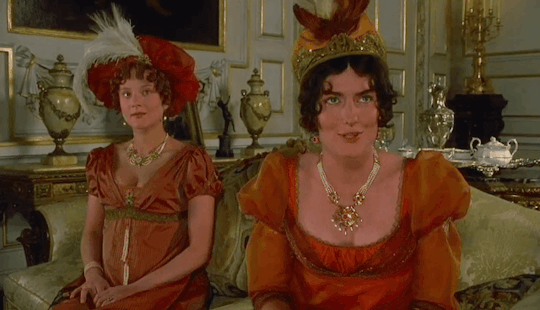
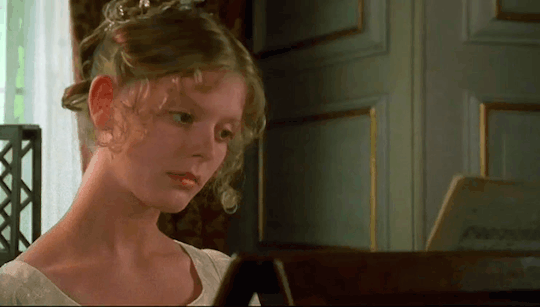
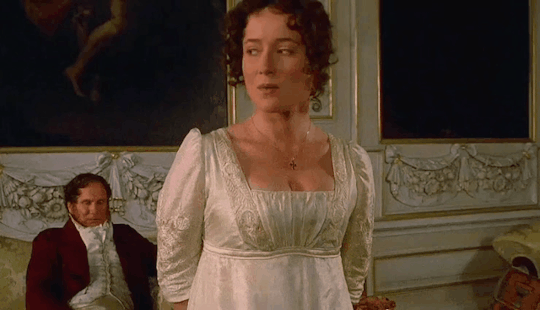




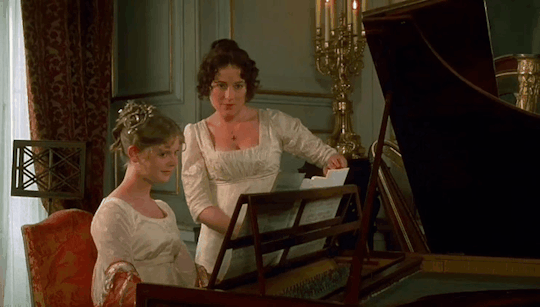


Pride and prejudice (1995)
dir. simon langton
#pride and prejudice 1995#pride and prejudice#jane austen#costume drama#period drama#elizabeth bennet#mr darcy#georgiana darcy#miss bingley#colin firth#jennifer ehle#emilia fox#anna chancellor#long post#my gifs#mine
342 notes
·
View notes